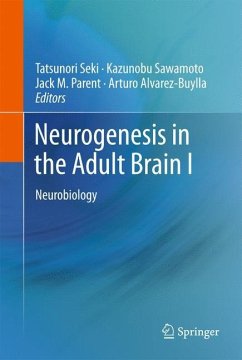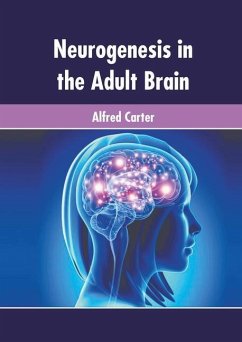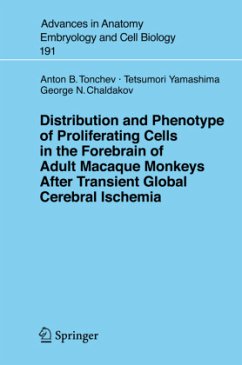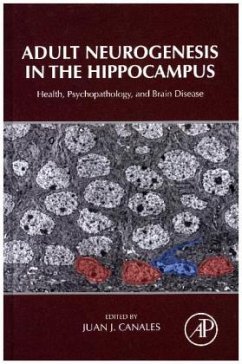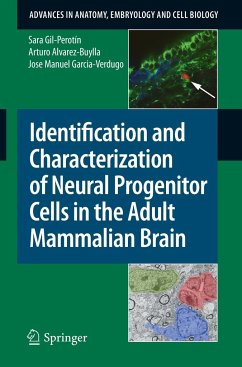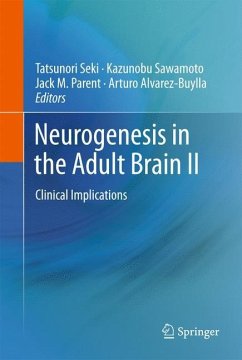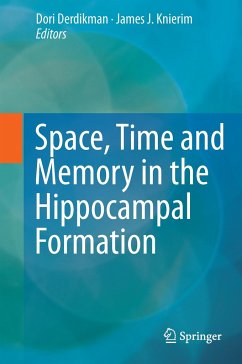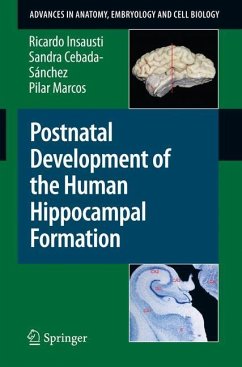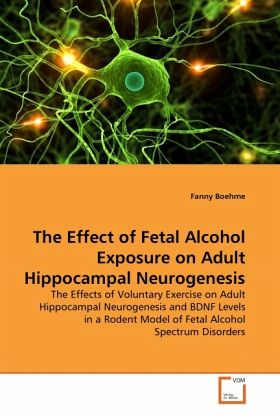
The Effect of Fetal Alcohol Exposure on Adult Hippocampal Neurogenesis
The Effects of Voluntary Exercise on Adult Hippocampal Neurogenesis and BDNF Levels in a Rodent Model of Fetal Alcohol Spectrum Disorders
Versandkostenfrei!
Versandfertig in 6-10 Tagen
32,99 €
inkl. MwSt.

PAYBACK Punkte
16 °P sammeln!
Alcohol consumption during pregnancy is detrimental to the developing nervous system of the unborn offspring. The hippocampus is particularly sensitive to the teratogenic effects of ethanol. Thus, prenatal ethanol exposure has been shown to result in both hippocampal malformation and impaired performance on hippocampal-dependent learning and memory tasks in rodents. The hippocampus is further one of the two brain regions where neurogenesis persists into adulthood,a process known as adult hippocampal neurogenesis. Several groups have also shown that adult hippocampal neurogenesis is compromised...
Alcohol consumption during pregnancy is detrimental to the developing nervous system of the unborn offspring. The hippocampus is particularly sensitive to the teratogenic effects of ethanol. Thus, prenatal ethanol exposure has been shown to result in both hippocampal malformation and impaired performance on hippocampal-dependent learning and memory tasks in rodents. The hippocampus is further one of the two brain regions where neurogenesis persists into adulthood,a process known as adult hippocampal neurogenesis. Several groups have also shown that adult hippocampal neurogenesis is compromised in animal models of fetal alcohol syndrome (FAS). However, the results obtained and the magnitude of the observed changes strongly depend on the rodent model used, as well as the dose, time, and frequency of ethanol exposure during the period of brain development. The present study we examined the effects of mild alcohol exposure throughout all three trimester equivalents on the stages of adult neurogenesis. Further this study also looks into cell signalling by analyzing the expression of Brain-derived neurotrophic factor (BDNF) a regulating factor of adult neurogenesis.



